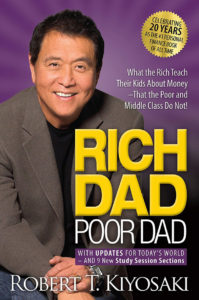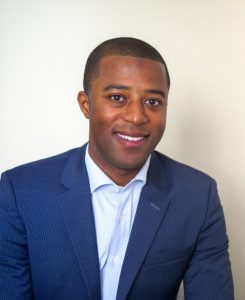How To Increase Your Cashflow Globally with Billy Keels
Becoming successful and increasing your cash flow globally takes more than just knowledge. It also takes dedication, communication, and people skills. KeePon Cashflow’s founder, Billy Keels, offers some insights on how to elevate your real estate business globally. As an expert in cashflowing locally and internationally, Billy teaches the differences between the US and European real estate market and the application of cashflow-based rules. Let Billy guide you in your global real estate endeavors as he shares his best and worst investments along with the lessons that he has learned from the people around him.
---
How To Increase Your Cashflow Globally with Billy Keels
Our guest is Billy Keels. While becoming a real estate entrepreneur, KeePon Cashflow’s Founder, Billy Keels, continues to work in the corporate world. In fact, he is one of the best corporate soldiers you'd ever want to meet. He has had the opportunity to work in 86 countries, learn and speak five languages and he has lived in three European countries, and just to mention he is an American. That includes growing up in America. With his personal growth experience, he has had the opportunity to develop professionally by leading multi-disciplined teams and managing businesses up to €74 million in the application software sector. He has earned his stripes as a true problem solver, a skill he's carried into his new entrepreneurial life. Now, he is a long-distance real estate entrepreneur, problem solver, author, coach, public speaker, and mentor. He sees opportunities for where people don't in people, teams and real estate. Topmost on his list is building a bridge between investors and buyers in Europe with sellers in the US. Billy is leveraging his strengths and education, his understanding of real estate across markets and his leadership and team building skills to help others find great cash flowing investment properties in the US. Billy, we've talked a few times. I'd call us friends by now. Thanks for joining me.
Taylor, it’s a pleasure to be here. I'm looking forward to a fantastic conversation.
You have an awesome bio. In talking with you, you always seem to be in a different beautiful part of Spain or another place in Europe, flying around having a great time and enjoying what you do. Now you're investing in real estate. Can you give our readers a bit of a deeper primer on what you've done in real estate since 2013?
The thing in real estate is something that has been fantastic. Even before a real estate and you mentioned before, I am a corporate employee, so I’ve been working multinationals for the better part of my life. When you're working in a multinational and especially if you're in those six-figure salary roles, there are a lot of different things that you have to be involved in. I can remember back when I got started before real estate, I was taking those long fights and coming back. The suit was a little bit sweaty and wrinkled because I'd been out all day in multiple customer meetings. I remember one day, I was managing a team. I was in a sales leadership role. I've gotten into the office early. I was trying to figure out who was going to be their first, me or my boss. That was always the competition of the day. He got there first that day, as he did many times. I was trying to get there early. After that, I had a cup of coffee and I remember talking around, “What's going on at the office?” Afterward, I went to my team meeting and I remember walking in and everybody being completely stressed, looking at their phones, halfway listening and halfway not. I finished that meeting and ran down the hallway to his office.
I remember having a meeting with him. I'm waiting and my heart's beating and I'm ready to walk in. When I opened the door like he was this picture of serenity, like completely calm, relaxed and I'm thinking, “This guy's earning any more money than me. He's got this whole organization and what was going on.” I was getting ready to get married at the time. I remember my boss asking me how things were going and I was telling him. When I told him, he was like, “Your stock portfolio is not doing well. It was going down.” He was telling me about this thing called arbitrage. I was like, “Arbitrage? What is that?” Keep in mind, this was a guy from Scotland who was living in Spain. He was telling me about investing in real estate, but back in Scotland. I was thinking to myself, “This is cool.” He was out there. He was doing his normal day job. He had this real estate portfolio that was on the side. I figured out I needed to do something similar. He was Scottish and living in Barcelona, I was like, “How did that work?” We've talked a lot and he explained more and more things to me. The thing that stood out is he had mentioned that this was his plan for retirement. I thought I wanted to do something that was pretty similar.

I remember sitting down and I wrote this plan. I was going to get into real estate. I wanted to go then buy it here. Eventually, I kept thinking about what my boss was telling me and one thing led to another. When I realized that living in Spain I could do something very similar like my boss was doing. Also, being able to create more cash flow and have more control over my life. I thought, “This is something that I definitely want to get into.” It was many years later after having read Rich Dad Poor Dad, I put that plan together. I wrote down a goal that was a five-year goal and one thing led to the next.
In 2013, I bought my first rental property. I was able to build a portfolio from there. A couple of years later, I’ve started working with other people that are investors outside of the United States primarily. I know it's probably a long-winded story, but a lot of people that are in day jobs, one of the things that I love to be able to do is to say, “You can also go out and create another life for yourself that can give you more money. It can help you to live with less stress and even be in more control of your time.”
It's no secret to many people reading that have looked into the differences between the domestic US and international real estate and things work differently here in the US. What are some of the misconceptions or items for re-education that you've brought to your investors and had to change their mind about as far as real estate investing in the US goes and how we maybe do it a little better here or maybe a little differently?
One of the things when I started in real estate, I was trying to get to that goal of trying to make more money and have a longer runway for retirement. When I started initially, one of the big things that I started realizing and I always go back to Rich Dad Poor Dad because a lot of the philosophies that I learned in that book and still use now, the principles are pretty much global. It's the big differences like how is it applied? When I start thinking about US real estate versus European or specifically Spain, I’ll try and be as local as possible because most of us know that real estate is local. There are three things that ring differently is probably the word. Number one, when you start thinking about the political environment. You also think about the economical environment. There's also a part that's cultural that makes a big difference. One of the main reasons or because of these reasons that I prefer to invest in US real estate, although I live in Europe. A lot of times a lot of it comes down to preference. When I start thinking about a lot of the political environment where there's a lot of stimuli that is around, making sure that the US real estate economy continues to move forward. That’s something that is important. When you look at the US economy, when you have so many of the world's Fortune 500 companies, more than half of the Fortune 500 companies are based in the United States.
It's another economical effector that helps, which also creates lots of job diversification. That is something that helps move there. Also culturally, it's something to keep in mind especially when you're thinking about real estate. I’ll give you an idea. If we look at North America or specifically the United States, typically the average employee is going to change roles some twelve different times during their professional career. Taylor, typically you may go to university or college in one city, maybe you start went to college in Memphis. You have your first job and it's in California. From there, you're going to get a promotion and you're moving to Dallas, Texas. From there, you may move somewhere else. Because of these different factors, it makes the real estate market in the US for me, especially because I'm a cashflow-based investor, it makes it a market that I much prefer. It minimizes some of the different risk factors and that also is interesting for a number of the investors that have decided to come and work on.
Go out and create another life for yourself that can give you more money and help you live with less stress and be in control of your time. Click To TweetMy understanding is that the cash flow opportunity here in the US is significantly greater. I certainly agree that cash flow is what we need to be investing for. We have that opportunity here in the US whereas prices in much of Europe, real estate being much more local than that, but throughout much of the continent, prices don't support cash flow. Most people over there that invest are investing for the long-term for an appreciation play and generally, they're not making significant cash flow on their investment. Whereas here, the whole goal is to make that cash flow.
For those of us that are focused on cash flow and maybe use an example. It's very similar to living in Barcelona or Madrid or I’ve lived in Paris before as well. Those markets are similar to living in San Francisco or living in New York City. These markets are very much appreciation-based. There are fewer opportunities to find cash flowing markets as we would have in the United States. We can look at over 400 MSA, Metropolitan Statistical Areas in the United States, which is one language, one currency, primarily. One language, one currency, and the rules are pretty much the same. They vary slightly state by state but in general, the rules are the same. Whereas if you look at the same European, it's very different languages, different countries, and different rules. That also makes it a little bit more complex to apply the same cashflow-based rules outside or to compare it at the top European to US levels.
As far as some of the biggest hurdles of a European investor coming to the US and trying to buy properties, there's a time difference. There's the difficulty of having to get on a plane, fly and spend a couple of days to go see properties. What are some of the other big hurdles that an investor from Europe would experience or does experience in investing in properties in the US?
In the beginning, some of the difficulties are pretty much global. A lot of it comes down to, at least what I’ve seen and now working with people that are in Europe or in Latin America or even in North America, what is it that someone wants to do? What are the goals? When I say that, I mean if someone is looking for more of a higher risk, higher reward, so looking for and appreciation-type play or someone looking for someone that's going to be much more consistent in terms of being able to help you use money. At the global level, that's pretty much the same. Once you can help people get clear on what type of investing they want to be able to do, maybe what a European investor would find is they want to look at the US market specifically, is where do you get started? Once you know what you want to do, how can you decide which is going to be the right location for you to be able to find what you're looking for? I would say after maybe you drilled down through which cities could potentially make the right location for you, but it's how do you get that whole team set up? That's where the biggest challenge comes for most investors that are not in the United States because the access to the team is not as easy as maybe we've traditionally seen it. That would probably be the biggest thing that I see with those investors that are not in the United States that are interested in investing in the United States.
In anything you do, the biggest part of taking out of the equation and multiplying your hours in your day and giving yourself to the freedom that you're looking for financially and both time-related. What have you seen as far as ways to get past that or like the biggest lessons that you've learned in establishing your teams? Obviously being an American and even though you've been gone for a little while you didn't have that cultural hurdle to get over in coming back to the US and investing in real estate. Is that one of the biggest lessons that you've learned seeing native Europeans investing in the US? Is that the cultural element? Once you get past the, “I know I need to have a team established.” As far as getting that team built up, is it cultural? How do we get past that and start building that team for European investors?

If I think of a relationship, when I met my wife many moons ago, in the beginning there was a courtship that took place. I wanted to understand more about her. She wanted to understand more about me. There was a curiosity. We got to know one another. We spoke on the phone. We would see one another during the day. We decided that there was a mutual interest. We wanted to know one another more. We started meeting with one another. We began to share more about our lives, about our goals, about our dreams to the point that we recognize that it was such a great partnership, that we wanted to get married. We took our relationship to that level. We got married. We went from marriage to having children.
In the same way, that relationship evolved, that needs to happen in a very similar way with an investor. What a European investor find maybe that's a bit different than someone who's in the United States, is maybe in those early days the communication could be a barrier. I don't mean language as a barrier. Communication, being able to understand how the local market operates. Understanding what the local team specializes in. Does the team specialize in three-star Michelin type of restaurants or is it in fast food restaurants? We like to typically talk about A, B, and C class properties. When you're a European investor, someone who's not in the United States, how do you figure out the team member that you're talking to? Do they have the same focus on the same tenet that you want to be focused on or the same resident? In the early days, you probably spend a lot of time on an email.
From there, you get on the phone and there are so many different tools that are available nowadays, whether it's Skype or Zoom where you can invest the same amount of time. As long as it's mutually beneficial, once you've invested that time and it would probably make sense for either the European investor or the investor with whom they work will get on a plane and build the relationship with the team locally face to face. It's the same evolution that took place with my wife and me, that would take place from someone who is not in a particular market to be able to build that relationship if it makes sense.
Billy, what is the best investment you've ever made?
I'll keep it real estate-related because I think the best one ever was education in myself and being able to understand. If we want to focus it on the real estate was the first duplex that I ever bought back in 2013. The property was in New Jersey. My wife and I were in Cairo, Egypt at the moment of closing. That was the first one and without a doubt has been the best one because that was the first one for me to get things started.
With investing, you won’t know or learn anything until you get started. Click To TweetOn the other side of that, what is the worst investment you've ever made?
I would say the third property that I purchased. It was a big learning for me because I didn't do the due diligence properly. Because I didn't do it properly, about two years after purchasing the property, I found out that I had about $20,000 worth of roofing issues. Had I had a stronger due diligence process, it probably wouldn't but that hurt a lot. It's also helped me to get much better in terms of my due diligence process.
What have you learned that you could have done differently? Is it as simple as hiring someone for a couple of hundred bucks to go through the house and take a million pictures so you can review it? Do you get to see your boots on the ground? If we want to drill down the change that you made in your due diligence process, what could you have done differently that time around? Can you get a little more specific?
I've always done a home inspection. That was always part of it. Keep in mind, this was a quadplex. We'd had that report and it came back, but I did not take the time to drill in and to look at the report and specifically to highlight certain areas like the roof, like HVAC. I took the report and read through it and didn't question it. One of the things that I’ve learned is that the major systems, moving forward, because also the properties are larger, I want to make sure that I take special time to not only read the report but check on those major systems and also speak with the person who did the inspection specifically, and have my team member there that is onsite during the inspection. Not just take for firsthand or what you read on the report and also making sure that I am hyper-focused on the major systems as it relates to due diligence, follow-up, and inspections.
This next question, you might have already given us the answer to that, but what is the most important lesson you've learned in investing?

The most important lesson I’ve learned is to get started because you don't know anything until you get started. One of the things I know I'd mentioned in the beginning was I'd read books. I was reading a lot of books and I’ve probably read books for almost three and a half years before I ever bought my first property. You don't learn anything, in my opinion, until you get started. That's the biggest lesson. I could have gotten started and had some of those lessons happened a lot sooner, I’d be further along in my progress than I have been.
You want to dive in and get going because of the way you're going to learn is by doing. Unfortunately as we covered, you're going to learn by making mistakes and hopefully, they're not too big. You're able to survive those mistakes. Is there anything else that you wanted to share with the readers, specific lessons or things that you've learned more recently that maybe we didn't cover?
As your business progresses and I say the business because someone may decide that they want to be a passive investor and they do certain things or someone may want to be active. The thing that I am becoming more and more aware of is it is so much about the team in terms of your progress, your development and not just on purchasing properties, but what you learn about your specific niche. Being able to grow more as an investor, as an educator, as a mentor, it is about the people in the teams that you surround yourself with. That can be an important part of your ability to attain and overachieve against the goals that you set for yourself.
I've learned through my own investing and certainly hosting a podcast that the team is absolutely key because we all only have so many hours in the day until you're willing to hire someone to handle tasks that can be done by someone else. You're always going to be limited by the number of hours you personally have to spend or invest in whatever particular venture you're pursuing. I absolutely agree that building a team to multiply the number of hours in a day that you have invested in your business or whatever other business you're pursuing is key. Billy, where is the best place for our readers to get in touch with you?
There are a couple of different places. I'd like to let people know because when you're looking at long-distance investing, I did write a book about my experience a couple of years back and I'd love to offer your readers a free copy of that eBook. They can go to GrowYourMoneyTheSmartWay.com and check that out. If anybody wants to get on the phone and have a conversation, I'm happy to share my experience. They can go to Bit.ly/speakwithbilly. If anyone would like to take a look at what we're doing at KeePon Cashflow, please feel free to go to the website and that is KeePonCashflow.com.
Billy, thank you for joining us and thank you for all the awesome lessons. For our audience, if you are enjoying the show, please leave us a rating and review on iTunes. It’s a big help. If you know someone, a friend or a family member that needs to grow their wealth or you think should have access to this information, please share this with them and bring them onto our team. Thank you. We will talk to you on the next one.
Important Links:
- KeePon Cashflow
- Rich Dad, Poor Dad
- GrowYourMoneyTheSmartWay.com
- Bit.ly/speakwithbilly
- iTunes - Passive Wealth Strategies for Busy Professionals
- KeePonCashflow.com
- Facebook.com/keeponcashflow
- Instagram.com/keeponcashlow
- YouTube.com/keeponcashflow
- Twitter.com/keeponcashflow






